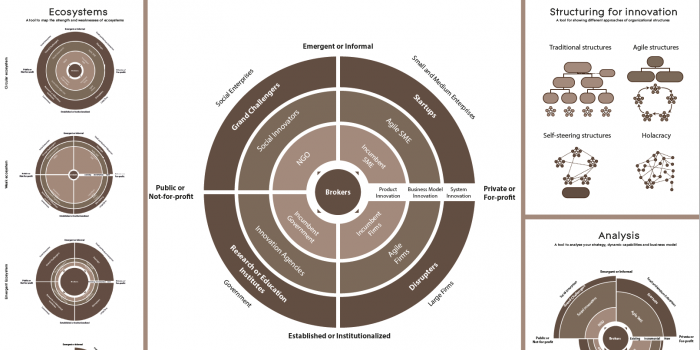Typology for Organizations: an update
It has been a while since Henry Mintzberg developed his influential work that made us aware of the importance of structures in organization design. To my opinion, Mintzberg’s work was a refreshing change to the world of organization design that until then has been largely influenced by Taylor’s Scientific Management Approach and Henry Ford’s efficiency-based adaptation of that.
As an entrepreneur and lecturer in organization science I find myself still using Mintzberg-related terminology on a regular base: ‘professional organizations’, ‘top management’, ‘middle management’, ‘hierarchy’ or ‘organization charts’. While these terms may be common language in business and as such might be useful in having a common understanding of what we’re talking about, much of it is outdated: organization design has shifted it’s focus over time. Structures are no longer of primary focus in design organizations. In fact, building blocks as ‘middle management’ might only still exist on paper today. Let me show you how the focus of organization design has changed over the years:
Read more
